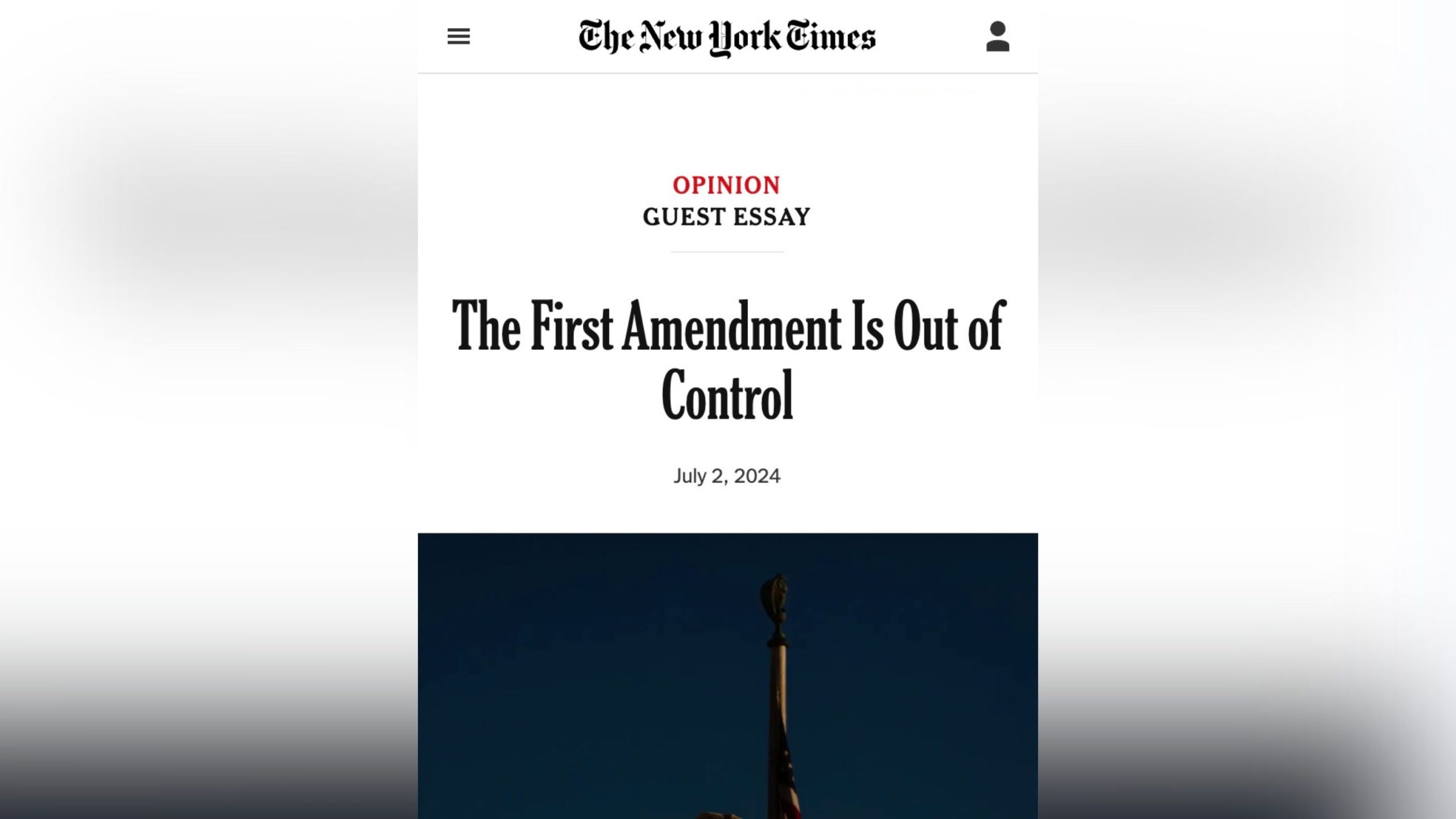Even the New York Times looks like it’s treading somewhat lightly while publishing articles aimed at dismantling the very concept of the First Amendment.
An opinion piece penned by an Obama and Biden administration adviser, Tim Wu, is therefore labeled as a “guest essay.” But was it the author, or the newspaper, who decided on the title? Because it is quite scandalous.
“The First Amendment is Out of Control” – that’s the title.
Meanwhile, many believe that attacks on this speech-protecting constitutional amendment are what’s actually out of control these days.
Wu takes a somewhat innovative route to argue against free speech: he painstakingly frames it as concern that the universally mistrusted Big Tech might be abusing it, with the latest Supreme Court ruling regarding Texas and Florida laws, (ab)used as an example.
When the government colludes with mighty entities like major social platforms – the First Amendment becomes the primary recourse to defend speech now expressed in public square forums forged through the pervasiveness of the internet.
So despite Wu’s effort to make his message seem unbiased, the actual takeaways are astonishing: one is that the First Amendment is an obstacle for the government to protect citizens (for being invoked as a tool restraining censorship?)
But this means that the First Amendment, designed to protect citizens from government censorship, is doing its job.
In the same vein, contrary to the sentiment of this “essay,” the amendment is there not to protect “national security” – nor does free speech undermine that, in a democracy.
You don’t like TikTok? Let’s just ban it…but the pesky First Amendment stands in the way of that? What Wu ignores here is that the bill that allows banning TikTok is so ambiguous it can be used to get rid of other, for whatever reason, “disliked” apps.
Wu also doesn’t like that the amendment is used to counter privacy and security-undermining age verification laws, like California’s Age-Appropriate Design Code.
“Suicide pact” is how Wu referred to the impact of the First Amendment in the 1949 dissenting opinion in the Terminiello v. City of Chicago “riot incitement” case.
As has lately become the norm with the First Amendment detractors: this is lots of words, most of them empty, some dramatic, but overall, free speech-unfriendly.


